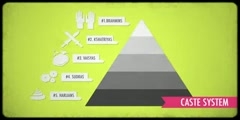Lec 15 - Freud on Sexuality and Civilization
"Lec 15 - Freud on Sexuality and Civilization" Foundations of Modern Social Thought (SOCY 151) Freud's brand of critical theory adds important dimensions; he argues that we can better understand our consciousness through the process of psychoanalysis—the talking cure, dream work, etc—and we can cure ourselves through this process as well. We discuss Freud's early days in Vienna developing psychoanalysis as a clinical approach alongside Jung, Ferenczi, and others in their tight-knit circle. They develop the ideas of the id, ego, and superego as well as the antithetical drives, the love drive (Eros) and the death drive (Thanatos). Later, Freud applies these concepts to society as a whole in his books Totem and Taboo and Civilization and its Discontents. His argument in Civilization and its Discontents calls to mind Nietzsche; he argues that the repression of urges and drives allows civilization to bloom and flourish, but the same repression is problematic on the level of individual psychology as well as on the level of civilization. 00:00 - Chapter 1. The Importance of Nietzsche's Approach 10:29 - Chapter 2. Freud in a Historical Context 14:06 - Chapter 3. Psychoanalysis and Other Breakthroughs 29:26 - Chapter 4. "The Ego and the Id" 40:02 - Chapter 5. "Civilization and Its Discontents" Complete course materials are available at the Open Yale Courses website: http://open.yale.edu/courses This course was recorded in Fall 2009.
Video is embedded from external source so embedding is not available.
Video is embedded from external source so download is not available.
Channels: Sociology
Tags: Lec 15 - Freud on Sexuality and Civilization
Uploaded by: yalemodsocialth ( Send Message ) on 14-09-2012.
Duration: 53m 29s
Here is the next lecture for this course
Astronomy & Cosmos 2: The Pope & ...
05:34 | 5977 viewsLec 3 - Foundations: Freud
56:31 | 3319 viewsLec 20 - Teen Sexuality and Teen Pregnancy
01:14:46 | 6657 viewsIntroduction With Indus Valley Civilization
09:34 | 3831 viewsLec 1 - History 1C: Modern Civilization 1 ...
01:01:13 | 2934 viewsLec 1- Introduction to European Civilization
36:19 | 3177 viewsLec 12 - Freud and Fiction
50:40 | 2635 viewsLec 2 - History 1C: Modern Civilization 1 ...
01:07:21 | 2864 viewsLec 3 - History 1C: Modern Civilization 1 ...
01:02:40 | 2551 viewsLec 4 - History 1C: Modern Civilization 1 ...
01:07:19 | 2798 viewsLec 5 - History 1C: Modern Civilization 1 ...
01:07:19 | 2377 viewsLec 6 - History 1C: Modern Civilization 1 ...
01:09:33 | 2285 viewsLec 7 - History 1C: Modern Civilization 1 ...
58:29 | 2498 viewsLec 8- History 1C: Modern Civilization 17 ...
00:10 | 2412 viewsLec 9 - History 1C: Modern Civilization 1 ...
01:05:26 | 2187 viewsNo content is added to this lecture.
This video is a part of a lecture series from of Yale
Lecture list for this course
Lec 2 -Hobbes: Authority, Human Rights and Social Order
Lec 3 -Locke: Equality, Freedom, Property and the Right to Dissent
Lec 4 -The Division of Powers- Montesquieu
Lec 5 - Rousseau: Popular Sovereignty and General Will
Lec 6 - Rousseau on State of Nature and Education
Lec 7 - Utilitarianism and Liberty, John Stuart Mill
Lec 8 - Smith: The Invisible Hand
Lec 9 - Marx's Theory of Alienation
Lec 10 - Marx's Theory of Historical Materialism (1)
Lec 11 - Marx's Theory of Historical Materialism (cont.)
Lec 12 - Marx's Theory of History
Lec 13 - Marx's Theory of Class and Exploitation
Lec 14 - Nietzsche on Power, Knowledge and Morality
Lec 16 - Weber on Protestantism and Capitalism
Lec 17 - Conceptual Foundations of Weber's Theory of Domination
Lec 18 - Weber on Traditional Authority
Lec 19 - Weber on Charismatic Authority
Lec 20 - Weber on Legal-Rational Authority
Lec 21 - Weber's Theory of Class
Lec 22 - Durkheim and Types of Social Solidarity
















